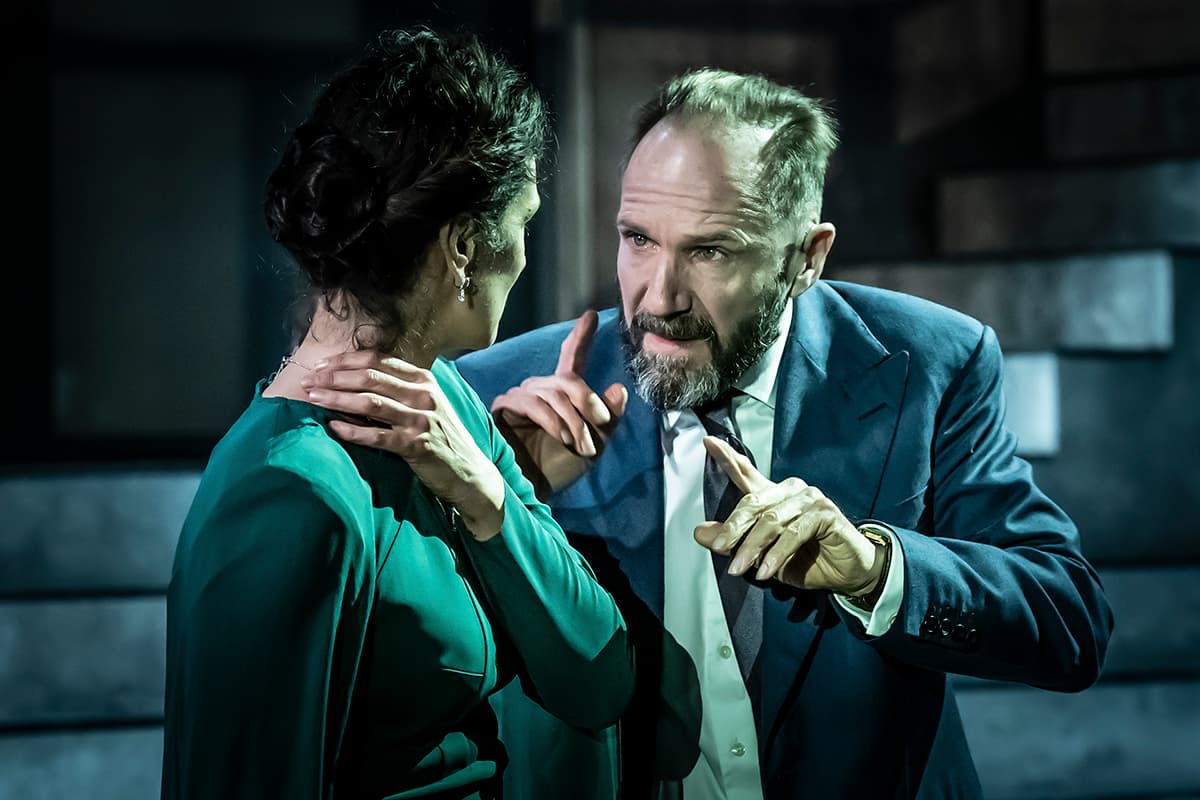Unkindest Cut: Defunding the NEA
If President Trump dramatically cuts funding to the NEA, what impact would that have on the arts in America?

In 1965, the National Endowment for the Arts was established with a mission “dedicated to supporting excellence in the arts, both new and established; bringing the arts to all Americans; and providing leadership in arts education.” It has often been under political siege, sometimes for funding works deemed as controversial and objectionable (think of Robert Mapplethorpe or Andres Serrano’s infamous photograph “Piss Christ,” which sent the religious right and corresponding members of Congress into a tizzy, calling for the department’s elimination), but more often because it has been deemed by Republicans as wasteful spending. The NEA’s budget has rubber-balled up and down, reaching an all-time low of $99.5 million in 1996. In 2016, its budget was a modest $148 million — an infinitesimal drop in the proverbial budget bucket.
The Trump administration has made rumblings that the NEA’s budget — and perhaps the agency itself — is on the chopping block, to make room for increased military spending and, no doubt, to help pay for that border wall President Trump swears Mexico will eventually fund. Yet, while cutting the NEA would make little difference in the overall budget, it would vastly impact the often meagre budgets of non-profit arts organizations nationwide, resulting in, if not exactly decimation, very clear and present hardships, impacting economics, programming and outreach. For this week’s Forum, we asked members of the local arts community about the impact cuts to NEA funding would have. The responses were pretty much unanimous.
If President Trump dramatically cuts funding to the NEA, what impact would that have on the arts in America?
José Carrasquillo, Associate Artist with Theater J, Company member with GALA Hispanic Theatre: A devastating one. The arts have a substantial economic impact in cities and communities across the United States. Cutting arts funding will undermines not only arts education programs offered by many arts organizations, but the cultural life of our citizens.
Mark Chalfant, Artistic/Executive Director, Washington Improv Theater: What Donald Trump fails to recognize is the huge economic impact the arts have on communities nationwide. The arts foster economic development. They frequently usher in positive economic change to neighborhoods. They bring in tourist dollars and help cultivate communities. Gutting the NEA would essentially mean dismantling an engine for economic development. It’s a cynical move based on pandering politics.
Michael Kahn, Artistic Director, Shakespeare Theatre Company: Primarily it will impact people and jobs. 4.8 million Americans work in the Arts industry and contribute to our nation’s rich and diverse cultural heritage. These artists and administrators are taxpayers, home buyers, and purchasers of other consumer goods. Eliminating the NEA would directly impact the administrators working for this government agency, but would also impact the artists and administrators who benefit from these grants, in all 50 states. The arts are culturally important, of course, but the arts are a business and an economic driver. For a President who has publicly claimed his desire to improve our economy, it’s very surprising to me that he would also seek to eliminate a source of proven economic improvement.
Chema Pineda-Fernandez, Company Member/Youth Advisory Board, GALA Hispanic Theatre: As is, arts funding is limited. With cuts to NEA funding, marginalized voices within the arts community will have less access to success. Without these fundings, organizations like GALA Hispanic Theatre, which focuses on the narratives of Latin Americans (which includes Native Americans, African-descendants, Transgender folx, disabled people, and other LGB+ individuals), will not be able to serve our marginalized communities as well. Where no one else gives us space, GALA Hispanic Theatre celebrates marginalized artists.
This is not an attack on privileged artists who are serving communities with funding, this is an attack on marginalized artists like GALA Hispanic Theatre who has been resisting oppression for over 40 years. This is an attack on Transgender Latinx Native and African -descendant womyn and Non-Binary individuals. Marginalized people have the most to lose with these cuts. Denying us access to our cultures is erasure. Cultural erasure is genocide. Cutting funding to cultural groups is a form of cultural genocide.
David Muse, Artistic Director, Studio Theatre: The amount of money that America invests in the arts and culture is already laughably small in comparison to almost every industrialized country. Per capita, we spend about 1/40th the amount that Germany does. Norway invests more in the arts than the United States does — even though our population is 64 times as large as theirs. We’re talking about .003% of the U.S. budget!
In my view, the most significant damage is symbolic. Cutting the already tiny amount sends a clear message to America and the rest of the world that we don’t value a culturally rich society or take enough pride in our artistic output to invest in it. But the effects of a cut would also be very real. The NEA serves a democratizing function, sending arts funding to all 50 states, and supporting small and rural arts organizations that have more trouble securing funding. Without it, arts will be further concentrated in wealthy, urban areas. Fewer artists and arts administrators will be able to support themselves. And we’ll deny ourselves the economic benefits — the multiplier effect — that flow from investment in the arts.
Tom Prewitt, Artistic and Executive Director, WSC Avant Bard: Substantial cuts or elimination of the NEA will have catastrophic ripple effects on local and state funding agencies, making it impossible for them to continue to support community-based arts organizations at even the current meager levels. Such a move would inevitably result in higher ticket prices and fewer services, pushing quality arts experiences even further out of the reach of moderate and low income individuals. Substantial cuts would also force the NEA to eliminate such invaluable, democratizing programs as the Our Town initiative or their recent, transformative outreach to veterans and their families. Arts education would suffer enormously at a time when in-school programs are already under siege.
Jonathan Waller, Managing Director, Everyman Theatre: As a Baltimore-based arts nonprofit, it is core to Everyman Theatre’s mission and values that professional theatre be affordable and accessible to everyone. A high percentage of NEA grants make it possible for a much larger and diverse audience to participate in the arts, including high-poverty neighborhoods and underserved populations. For many NEA-supported nonprofit organizations, to cut that specific funding would mean that the wealthy and privileged few who can afford to participate would continue to have access, but others would have it taken away.
Douglas Yeuell, Executive Director, Atlas Performing Arts Center: Defunding the NEA would obliterate the good of so many arts organizations and artists that use their art to positively impact American society and culture. It would be a massive game changer in a world already so deeply in need of inspiration, understanding, enlightenment and healing. Art matters. Art makes a difference. Art is what defines our humanity.
How would your venue be affected by NEA cuts?
Chalfant: WIT has thriving earned revenue streams including our performances, classes program, organizational trainings — we’re fortunate in that we’ll be able to weather the cuts. However, symbolically, this will continue to create an environment where the arts are sorely undervalued.
Pineda-Fernandez: Without the funding from NEA, other Transgender Native American former refugee artists from El Salvador would not have access to a job. GALA provides work for countless artists that other organizations deny us simply for our diverse and intersectional identities. We would have to resort to producing less work, and working harder to reach out to donors who often ignore us. In the end, the community will come together to tell our narratives, because we are the only ones doing it. But the NEA is very important to our work. It is allowing us to produce Heridas escondidas, which we are developing with Latinx victims of domestic and sexual violence, allowing them to create and tell their own stories on GALA’s stage in June.
Prewitt: State funding for the arts in Virginia is already at an all-time low, and further cuts at the national level would render such funding virtually meaningless. Local arts agencies would struggle to pick up the slack, but they would be faced with severe cutbacks as well. My own theatre, WSC Avant Bard, would be forced to consider truncating our season and/or raising ticket prices, either of which would compromise our mission as a community-based classical company that is accessible and affordable to all.
Waller: While Everyman Theatre does not itself receive funding from the NEA, to cut NEA funding would be to undermine one of our organization’s core values: that professional arts should be affordable and accessible to everyone. So it’s important to voice our support. In addition to promoting access, NEA’s funding of nonprofit organizations allows those organizations to take risks on new works — works that may eventually make it onto the Everyman Theatre stage.
Muse: We receive NEA funding almost every year, and having it reduced or eliminated will affect us. We would counter or cope with it in the other two ways that an arts organization can: try to bring in more support from other sources, or cut programming. I’d love to say that our work couldn’t happen without the NEA, because that would mean I live in a country that invests enough in the arts for it to make a huge difference to theaters. But we don’t.
Kahn: To date, STC has received just over $2 million in funding from the NEA. This funding has helped to sustain STC over the years, providing continual and essential support to fulfill our mission to produce and present the highest-quality classic theatre. The Shakespeare Theatre Company would potentially lose funding from three sources, including Arts Midwest’s Shakespeare in American Communities grants — this is a pass-through funding program which provides support for STC’s student matinees of Shakespeare plays including our free District Shakespeare program which provides comprehensive matinee experiences to DC-youth, many of whom would never be able to afford to attend even a modestly priced live performance. STC would lose one of our most consistent funding sources that is essential when we plan and commit to our annual programming. We’d have to rely on donations from other sources or look at potentially increasing our ticket revenue which would possibly affect our future programming and impact our education programs, such as District Shakespeare and SHAKESPEARIENCE, and may influence our ability to provide free, affordable and accessible theater for all.
Additionally, the NEA is important to our work beyond direct funding loss. Receipt of a grant from the NEA is, to many other funders, proof of an arts organization’s commitment to artistic excellence and we proudly display the NEA logo on our advertisements and other marketing materials. The NEA also executes important research projects about the state of the arts in our country and publishes this information on their website for public consumption. The NEA is not only vitally important to the work of the Shakespeare Theatre Company but also to that of all arts organizations across the country.
Yeuell: The NEA may not directly have a deep impact on the work that we do. Funding from other sources diversifies the financial picture. But it is the indirect impact that it will have. When dominoes fall, you never know where in the line-up you may be or how the path may go. We all stand on shaky ground. Dominoes need each other to stand. When one falls, we all go.
Participate in Metro Weekly’s Forum. Visit metroweekly.com/forum for details on how to contribute your voice.
Support Metro Weekly’s Journalism
These are challenging times for news organizations. And yet it’s crucial we stay active and provide vital resources and information to both our local readers and the world. So won’t you please take a moment and consider supporting Metro Weekly with a membership? For as little as $5 a month, you can help ensure Metro Weekly magazine and MetroWeekly.com remain free, viable resources as we provide the best, most diverse, culturally-resonant LGBTQ coverage in both the D.C. region and around the world. Memberships come with exclusive perks and discounts, your own personal digital delivery of each week’s magazine (and an archive), access to our Member's Lounge when it launches this fall, and exclusive members-only items like Metro Weekly Membership Mugs and Tote Bags! Check out all our membership levels here and please join us today!





















